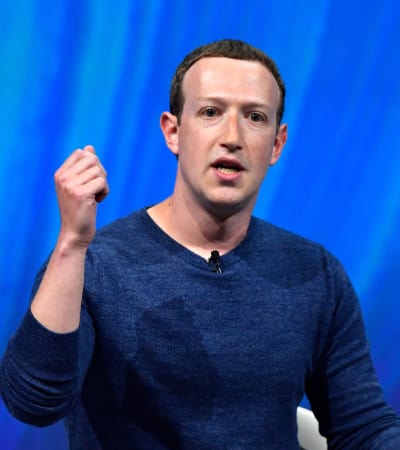Remember in late 2016 when it looked like Mark Zuckerberg was testing the waters for an eventual Presidential run? That ship has clearly sailed.
In a recent statement, Zuckerberg seemed to make excuses for Holocaust deniers on Facebook, claiming that the classic neo-nazi talking point is just an honest misunderstanding.
Now, he’s trying to walk back his statements … but not doing a great job of it.
On a Wednesday appearance on the Recode Decode podcast, Mark Zuckerberg reminds listeners: “I’m Jewish.”
That is definitely relevant to the conversation of Holocaust denial and other abhorrent content that spreads via Facebook.
“And there’s a set of people who deny that the Holocaust happened,” Zuckerberg admits.
“I find that deeply offensive,” he says.
For the record, saying that Holocaust denial is offensive kind of misses the point.
‘But at the end of the day,” Zuckerberg continues. “I don’t believe that our platform should take that down.”
Yikes.
He does explain his point of view.
Zuckerberg says that he doesn’t want to block thta content “because I think there are things that different people get wrong. I don’t think that they’re intentionally getting it wrong.”
Some would argue that people who believe evil, untrue things are never intentionally getting it wrong. Other say that most Holocaust deniers are deliberately lying.
“It’s hard to impugn intent,” Zuckerberg says. “And to understand the intent.”
Many would say that the intention behind spreading such misinformation doesn’t really matter.
“I just think, as abhorrent as some of those examples are,” Zuckerberg says. “I think the reality is also that I get things wrong when I speak publicly.”
Zuckerberg sent a follow-up email to clarify his wildly controversial statements.
“I enjoyed our conversation yesterday,” his email begins. “But there’s one thing I want to clear up.”
A lot of people are better-spoken in emails than they are in interviews.
“I personally find Holocaust denial deeply offensive,” Zuckerberg repeats. “And I absolutely didn’t intend to defend the intent of people who deny that.”
That’s … reassuring?
“Our goal with fake news is not to prevent anyone from saying something untrue,” he clarifies. “But to stop fake news and misinformation spreading across our services.”
That sounds like a subtle distinction for those who don’t actively work in social media.
He goes on to explain how he hopes that Facebook will accomplish this goal.
“If something is spreading and is rated false by fact checkers,” Zuckerberg describes. “It would lose the vast majority of its distribution in News Feed.”
“And of course,” Zuckerberg continues. “If a post crossed line into advocating for violence or hate against a particular group, it would be removed.”
That is probably welcome news to the people who have reported direct threats against them on Facebook only to have Facebook respond with the formal equivalent of a shrug.
“These issues are very challenging,” Zuckerberg admits. “But I believe that often the best way to fight offensive bad speech is with good speech.”
“I look forward to catching up again soon,” he concludes. “Mark.”
There are a few issues with his statement.
First of all, addressing direct and explicit violent threats just allows people to play word games. Holocaust denial is a popular word game.
A number of white supremacist groups enjoy presenting the Holocaust as a fabrication, concocted by an all-powerful Jewish cabal in order to procure international sympathy.
Zuckerberg himself is unlikely to be impacted by the spread of anti-semitism, because his status as a billionaire means that he does not face the everyday experiences that non-billionaire minorities do.
And that goes for his entire family.
He might be offended by their rhetoric, but he is not the person who is likely to have his home or place of work vandalized by someone who worked themselves into a frenzy after consuming hour after hour of conspiracy theories.
Many have pointed out that Zuckerberg cares more about making money off of avowed racists on his platform than he is about the real world consequences of helping nazi ideology to spread.
In Zuckerberg’s defense … he’s not the best at public speaking.
Also, YouTube’s video suggestion algorithm, which points so many teens to a cesspool of conspiracy theoriest and white nationalist media, is definitely worse.
Still … defending Holocaust deniers isn’t a great platform for a political run. Unless you’re Trump, apparently.






